We are the UK’s largest gas distribution network, bringing gas to 11 million homes and businesses. We manage a network of more than 82,000 miles of pipes, most of them underground

Following on from postponement in 2020 due to the COVID-19 pandemic, the 26th annual United Nations Climate Change conference (COP26) takes place in Glasgow from 1st to 12th November 2021. We know that global climate change is the most pressing challenge facing society, that’s why our Future of Gas project aims to work towards a sustainable future in energy production. This challenge is predominantly an energy challenge and to complete it, all societies must have access to world leading, innovative and cost-effective energy networks.
The UN Climate Change conference is an opportunity for world leaders to get together and discuss the climate change emergency and what action each country plans to take to tackle it. It will be attended by countries that signed the United Nations Framework Convention on Climate Change (UNFCCC), which is a treaty agreed in 1994.
The COP26 conference is also known as Conference of the Parties, with this being the 26th edition. The 2021 summit is being hosted by the United Kingdom and takes place in Glasgow, Scotland. This is alongside the UK’s plans to become Net Zero for carbon emissions by 2050.
The 2021 COP26 conference will be held between Monday 1st November and Friday 12th November 2021 and takes place at the Scottish Events Campus (SEC) in Glasgow, Scotland.
We are playing a leading role in helping the UK reach our Net Zero target, by connecting greater levels of renewable gas and leading on new technologies and infrastructure to cut our carbon emissions across heat and transport.
The next decade is non-negotiable in the progress to achieving NetZero. The CCC recently noted that emissions reductions from sectors other than energy generation are far short of where we need to be. If we are to have any chance of meeting our ambitions, then energy networks like us will need to play a critical role.
The UK gas network is a strategic national asset that connects 24 million homes across the country. It is vital that this is fully utilised on our path to Net Zero.
The pathways tell us that the total projected future hydrogen demand for the combined region is: 22.4TWh and that the combined region will need to ramp up building retrofitting to a rate of 700 per day in the next 5 years, so there is a big challenge ahead of us.
It’s now accepted across the UK and through work such as the Pathways that hydrogen will need to play a role in the UK’s future energy scenario, with projects such as Hydeploy and Hynet working towards making this a reality.
You can find out more about our hydrogen programme here.
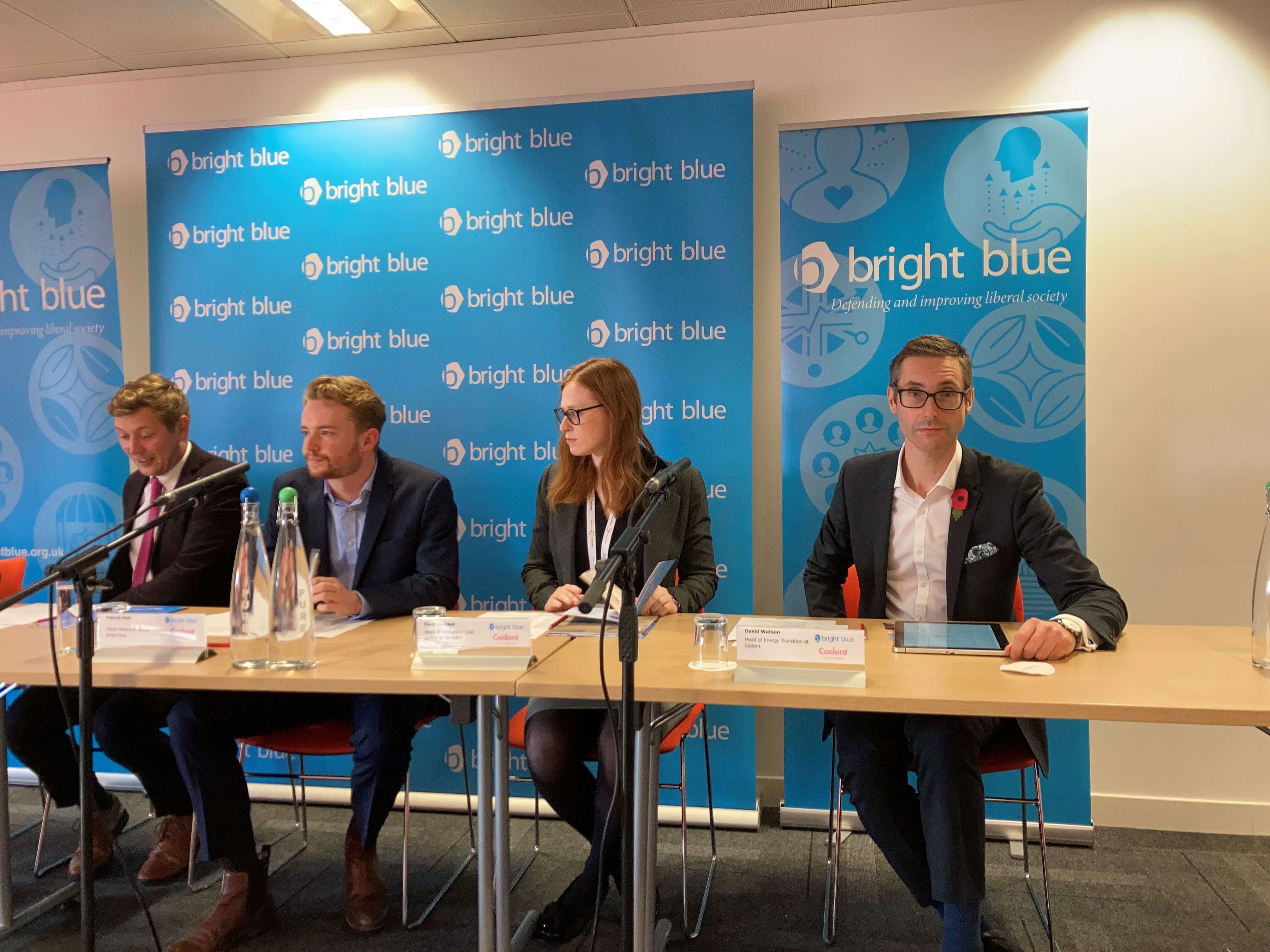
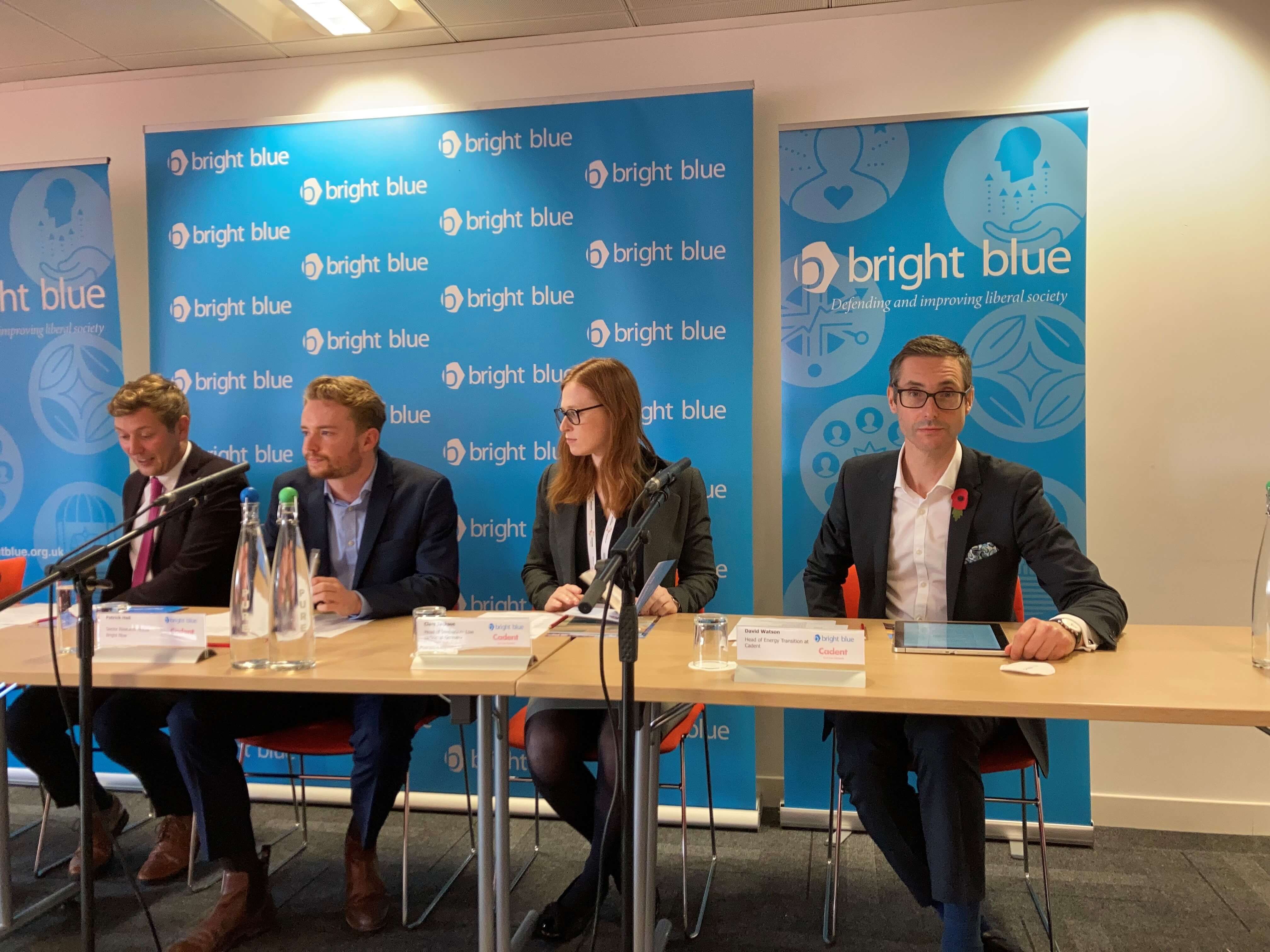
We’re involved in several hydrogen projects in partnerships with the energy sector.
The three main areas we lead on are blending, industrial power and decarbonising heavy transport.

Protecting the environment and transforming our energy system is hugely important for us and the communities we serve – now and for the future.
To ensure that we are at the forefront of creating energy solutions for the future, we work closely with government on policy, reaching out to new audiences, experimenting in our communication methods and innovating with the support of partners and our supply chain to reduce our carbon footprint.

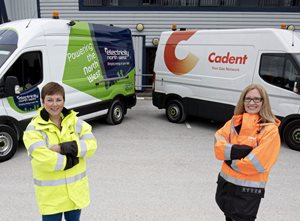

Collaboration is key when designing a net zero future for our regions. In a first-of-its-kind collaboration, we worked with Electricity North West to develop the Decarbonisation Pathway for Greater Manchester report, plotting a route to net zero for the region.
The Greater Manchester Combined Authority has set a bold ambition for Greater Manchester to become a place of net zero carbon emissions by 2038, aligning it with the objectives of the Paris Agreement. This target places Greater Manchester on an accelerated trajectory compared to the rest of the United Kingdom, which is set to reach carbon neutrality in 2050, 12 years later.
Together with Electricity North West, we commissioned Guidehouse (previously known as Navigant) to create a net zero energy scenario for 2038 and to outline a pathway to achieve this vision. The report included contributions from the Greater Manchester Combined Authority (GMCA), Greater Manchester Low Carbon Hub, Manchester Fuel Cell Innovation Centre, Manchester Metropolitan University, Place Making Directorate and Progressive Energy.
The report makes clear that Greater Manchester can achieve net zero by 2038, which would be 12 years earlier than the rest of the UK, as long as decisions are made now and are ‘right first time’. It explains that, to hit target, the region must tackle energy inefficiency, transition to using hydrogen gas supplies and use green electricity generated more locally. The Pathway report has provided a tangible roadmap for GMCA to achieve its ambitions supported by independent evidence and stakeholder engagement.
Published and presented back to GMCA in July, the report was welcomed by Cllr Andrew Western, the GMCA lead for Green City Region, as “an important contribution for a carbon neutral city-region by 2038 and the detailed discussions we are having about how we will get there.”
This work has provided a template for other local authorities in the North West region, and we are now working on similar reports for Liverpool City Region, Cumbria, Lancashire and other local authorities. Like Greater Manchester, the aim is to help them develop a pathway, or high-level implementation plan, to deliver their decarbonisation plans.
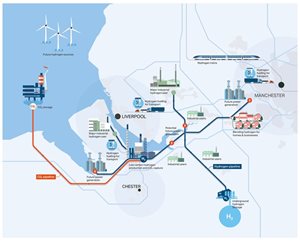

HyNet is essential for UK Government to deliver several objectives within its recently announced 10-point plan for a green industrial revolution, as well as the local net zero targets of Cheshire West & Chester in 2045, Liverpool City Region in 2040 and Greater Manchester in 2038.
Following a commitment of £72 million of funding, HyNet will transform the North West into the world’s first low carbon industrial cluster, playing a critical role in the UK’s transition to net zero greenhouse gas emissions by 2050 and the global fight against climate change.
From 2025, we will begin to convert natural gas into low carbon hydrogen at Stanlow Refinery, with carbon dioxide safely captured and stored offshore in the Liverpool Bay gas fields. A new pipeline network will transport the clean hydrogen to power industry, fuel buses, trains and heavy goods vehicles, to generate electricity, and to heat homes across North West England and North Wales.
Through HyNet, we will reduce regional carbon dioxide emissions by up to 10 million tonnes every year by 2030 – the equivalent of taking four million cars off the road. By then, HyNet alone will already be delivering 80% of the Government’s new UK-wide target of 5GW of low carbon hydrogen for power, transport, industry and homes.
Business and Energy Secretary Kwasi Kwarteng said:
“We were the first major economy to put into law our target to end our contribution to climate change, and today we’re taking steps to be the first major economy to have its own low-carbon industrial sector.
“While reaching our climate targets will require extensive change across our economy, we must do so in a way that protects jobs, creates new industries and attracts inward investment - without pushing emissions and business abroad.
“Ahead of COP26, the UK is showing the world how we can cut emissions, create jobs and unleash private investment and economic growth.”


We know that the transition to a cleaner, greener future requires us to bring customers on the journey with us. While our HyDeploy project is showing us how to blend hydrogen into the gas network without affecting customers’ supplies, it’s important our communities understand the challenge we are seeking to address and how the transition will impact their lives.
Hydrogen, biomethane and all other clean gases are not easy topics to explain to a general audience. To tackle this challenge and build public awareness, we built a brand new future of gas hub on the Cadent website, which we continue to promote on our social media channels and via key local stakeholders. The hub contains information on all our key decarbonisation initiatives and educational downloads.
You can even tap into our hydrogen chatbot to seek real-time answers to any questions you may have.


We're committed to exploring how cleaner, greener fuels can fuel heavy transport and support the future of UK industry and commerce.
We need to keep those goods on the move for the sake of the economy and we also need to get to net zero for the sake of our planet. We know that introducing low carbon heavy vehicles will help to improve air quality for our children and ourselves. Fortunately, we are making great progress and are leading on this area within the energy sector.
To increase confidence and demand in using greener gases to fuel transport, we have led by example by converting our own fleet of heavy goods vehicles (HGVs) to be solely powered by renewable biomethane.
While taking no regrets steps today, we’re also looking ahead to the fuels of the future. Both electricity and hydrogen have a key role to play in decarbonising transport. We know that hydrogen is particularly suited to larger vehicles such as HGVs, buses and ferries. Hydrogen offers significantly longer running distances and faster refuelling times than electric batteries, and is therefore ideal for long-haul transportation.
Our Transport Pathway report, launched in March 2021, examines the transition from compressed natural gas (CNG) today towards a hydrogen future, providing insight into the technical challenges and potential short-term policy asks that will enable effective decarbonisation of the industry. We launched the report with a live webinar, to educate and inform our stakeholders on the critical role of hydrogen transport in achieving net zero.
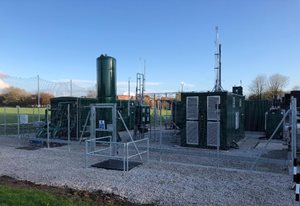

We are running HyDeploy in conjunction with Northern Gas Networks and other partners including the Health and Safety Executive (HSE), to demonstrate that hydrogen can be safely blended into the gas network to heat our homes.
30% of carbon dioxide emissions in the UK are generated from the gas used to heat the 85% of homes which are connected to the gas network. By 2050 there will be net zero carbon emissions in the UK, which means there is a huge challenge to change the gas we use.
Under the HyDeploy project, we are blending up to 20% hydrogen into existing gas supplies. Using the Keele University campus as our test site, we have proven that the use of the blended gas requires no change to appliances, and customers do not notice any difference to their gas supply.
Next, the community of Winlaton will make history, and play an important part in the future of hydrogen use, by becoming the first public network to receive a 20% hydrogen blend. The 670 houses in the trial area of Winlaton plus the church, primary school and several businesses will all receive the hydrogen blend for a period of around 10 months starting in Spring 2021.
Northern Gas Networks runs the Winlaton network and has the support of Gateshead Council. The project team is taking a rigorous approach to safety as a priority, working closely with the Health and Safety Executive (HSE). Free gas safety checks for appliances have already been carried out at all of the properties which will receive the blended gas.
This project is a vital step towards using hydrogen in the public gas network and the results will be submitted to the Government to help form policies about the future of gas. If blended gas was distributed to homes and businesses across the country, it could prevent 6 million tonnes of carbon dioxide being released to the atmosphere every year. That’s the same as taking 2.5 million cars off the road.


The gas industry is facing a dual challenge as we transition to a cleaner energy system – more green gas suppliers connecting to the network and increasing demands on it, including more flexible power generation and gas for transport.
A first for the UK, OptiNet is a collaborative project to help us balance green gas supply with demand to maximise the green gas production and keep homes heated. Through OptiNet, we are supporting the transition to a cleaner energy system – an essential step on the path towards decarbonising by 2050.
Find out more from James Whit more
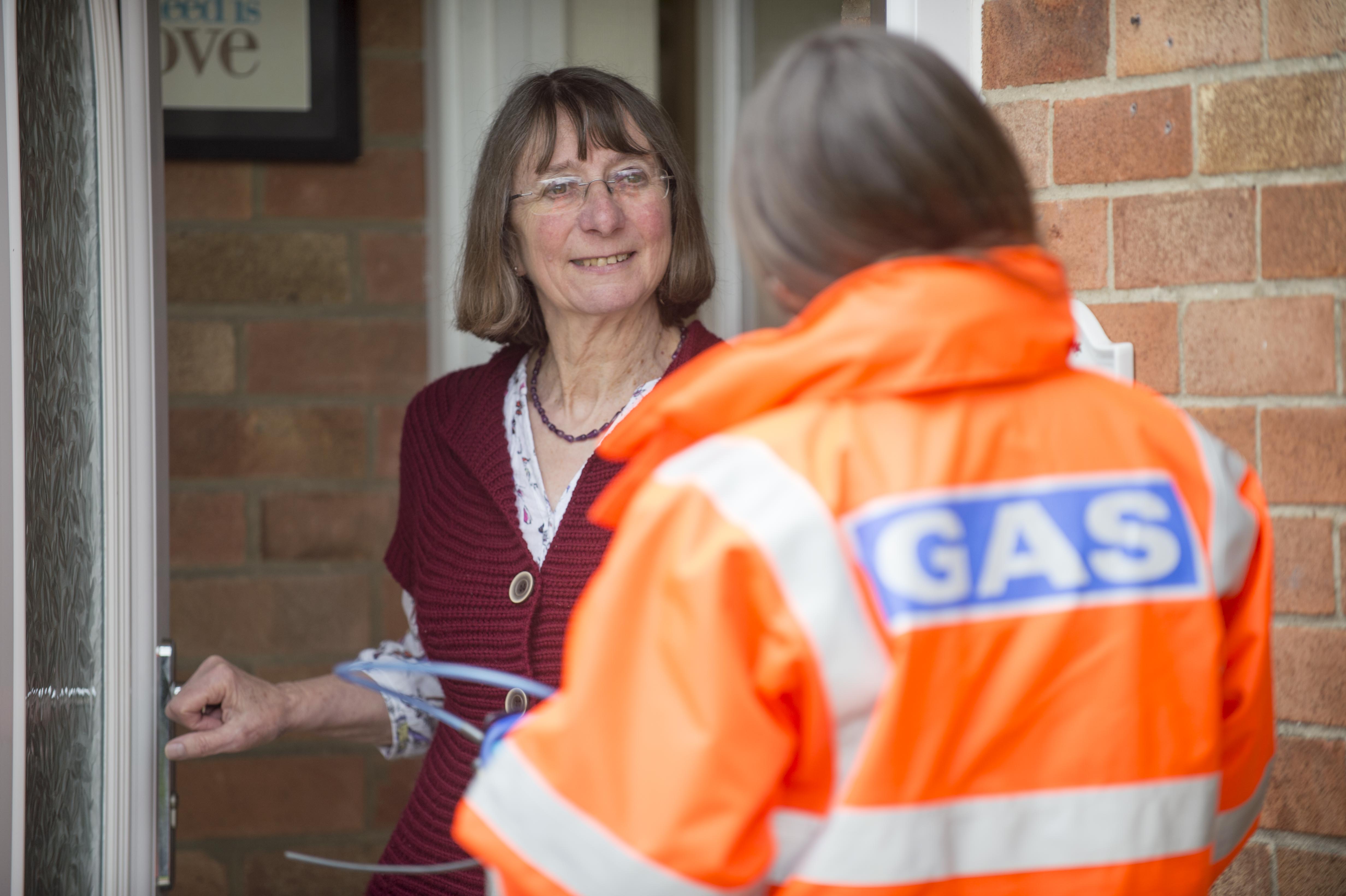
Anyone can be vulnerable if their circumstances change and rather than using labels, we prefer to focus on individual needs and what we can do to ensure customers stay safe, warm, connected and independent in their homes.
Our customer vulnerability strategy forms the backbone of our approach and focuses on our stakeholders’ top priorities: increasing PSR registrations, raising awareness of carbon monoxide (CO), tackling fuel poverty and providing services for all.

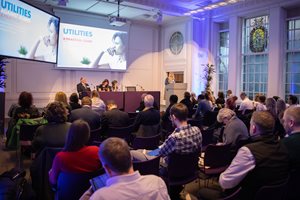

As an essential service provider, we believe we have a responsibility to ensure our customers are protected from scams and feel confident in communicating with us as a business. In November 2019 we launched Utilities Against Scams (UAS), working with six other customer-facing utility organisations.
Scams are becoming more commonplace, more sophisticated and harder to spot than ever before; as utility companies, we are in the privileged position of entering customers’ homes for planned and unplanned works.
We’re well positioned to make a positive difference in helping to eliminate scams, and under the UAS initiative we are achieving this by:
We are also working to have a positive effect on our customers through scam education and empowerment by providing advice and information on the sorts of scams there are and how they can seek help if needed. We have committed to delivering 10,000 aids (such as anti-scam door stickers and notepads) to support key guidance to prevent scams as detailed in the UAS guidance.
All of these allow us to make positive steps in raising awareness and preventing the number of those who fall victim to scams.
This work has provided a template for other local authorities in the North West region, and we are now working on similar reports for Liverpool City Region, Cumbria, Lancashire and other local authorities. Like Greater Manchester, the aim is to help them develop a pathway, or high-level implementation plan, to deliver their decarbonisation plans.

To reach those in need in Central Lancashire, we supported the launch of an innovative new community outreach venture.
Working with Age Concern Central Lancashire, Electricity North West and United Utilities, we developed a 7.5-tonne, 56-square-metre vehicle, to bring information and advice to local communities.
The Mobile Advice Centre (MAC) includes two consultation booths, open space for group activities and talks, air-conditioning and facilities to make refreshments. It is specially designed to be dementia friendly and is accessible for people of any age and ability to get the information and advice they need.
The vehicle will be used at supermarket car parks, community events both large and small and throughout Lancashire’s towns and villages with a full schedule of locations to be released in due course and once COVID19 restrictions allow.
Suzanne Carr, CEO of Age Concern Central Lancashire, said:
"We are delighted to have formed partnerships with the North West's big three utility companies which in turn means our customers will have access to a full suite of services, and most importantly, will be able to access 1-2-1 support on a range of important matters from independent living through to seeking help during an energy crisis.”

On 27 February 2020, Anosmia Awareness day, we announced we’re working in partnership with Fifth Sense to raise awareness of smell disorders. Anosmia is the medical term for the loss or lack of a sense of smell, and it’s thought that around 5% of the UK population* have the condition.
Many people do not even realise what an important role the sense of smell plays in our lives and the problems people who are deprived of it face. Our sense of smell does not only let us smell and distinguish the different aromas, it can also act as a main early warning system for our bodies and help keep us safe. Anosmia has risen to increasing prominence during the COVID-19 pandemic, with many people in the community losing their sense of smell as a result of the virus.
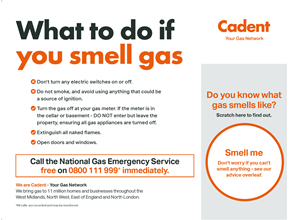
People who suffer from a loss of smell are unable to detect warning odours such as food that has gone off, or not being able to smell gas or smoke. We are working to raise awareness of the dangers of a loss of smell and the dangers of being unable to smell gas, so customers can take steps to keep themselves safe.
Using Fifth Sense’s networks, we have distributed key tools to educate customers on gas safety, including delivering ‘scratch n’ sniff’ cards which test whether someone can successfully smell Mercaptan, the odorant in natural gas.
Fifth Sense is the charity for people affected by smell and taste disorders, providing support, information and educating society on the huge role that the senses of smell and taste play in our lives.
* The Impact of Olfactory Disorders in the United Kingdom Carl M. Philpott and Duncan Boak


As social isolation continues to rise through COVID-19, we recognise it’s more important than ever to help our vulnerable residents, particularly those living in villages and rural areas. That’s why we are supporting Warwickshire County Council’s Warm Hubs initiative, to help communities target social isolation.
Feelings of isolation or loneliness can often lead to depression, anxiety and additional health complications.
A Warm Hub is an affordable, inclusive activity run for the community by the community, in a warm and safe space. As well as helping to reduce social isolation, Warm Hubs offer other benefits, including possible access to funding opportunities. Warwickshire’s first Warm Hub was launched at Shotteswell Village Hall on 13 December 2020.
Our volunteers were delighted to help deliver some of the 126 cooked breakfasts to residents, along with local MP Jeremy Wright. Jeremy commented: “Community volunteers in Shotteswell have been showing real community spirit and ingenuity in adapting the Warm Hub concept to the age of Covid-19. It was a real pleasure to see that warmth (and warm breakfasts) being distributed around the village”.
We recognise our responsibility to educate local communities about gas safety, providing key information and simple tips to access gas supplies safely and reliably.
This year we increased our engagement to tackle this critical issue, conducting extensive research into gas safety awareness with 8,000 customers across the UK, with the support of the Energy Networks Association and our fellow gas distribution networks.
Since then, we have used this insight to improve our approach to gas safety education, using trends from the research to identify ‘hotspots’ that require further education on this topic, and identify methods we can use to effectively reach out to these communities.
Our ‘Be Winter Ready’ campaign saw us distribute some 20,000 information packs and resources to local communities via established, trusted partners such as Fire and Rescue Services and Carers Trust. We were also delighted to launch our new animated awareness campaign, to educate our communities in a simple, accessible format.
We supported national campaigns Gas Safety Week and CO Awareness Week, using a new collaborative approach to provide joint information and advice with partners Gas Safe Register and Derbyshire Fire and Rescue Service. This included new web pages, two radio campaigns tailored to the hotspot areas identified by our research, personal case studies from emergency engineers, and Q&A videos launched across social media and surveys to engage our employees in the conversation.
We continue to test and improve our approach to ensure we have the greatest possible impact in educating customers across the UK on this vital topic. We are growing our partner network to ensure we make the most of existing connections with local communities.


When the country went into lockdown in March 2020, we wanted to help as many people as we possibly could through voluntary action. To achieve this, we increased our employees’ volunteering allowance from one paid day per annum to two paid days per month from April to September 2020.
Colleagues were encouraged to support any cause helping the country address the challenges of lockdown and isolation. Our employees embraced this initiative with gusto and supported causes including NHS Responders, Mutual Aid groups and Local Authorities.
We also introduced a £10 grocery allowance for our field-based colleagues who were providing critical face-to-face services to our customers during lockdown. Our office-based staff, who were working from home, were encouraged to support lonely customers through telephone befriending programmes with Alzheimer’s Society, Age UK and Volunteering Matters.
Our voluntary efforts were to not only protect the most vulnerable but also to keep our communities connected. Our time spent volunteering enabled us to maintain and create networks and connections by addressing the risks faced by many individuals who are lonely, socially isolated and at risk. We estimate that our collective efforts from April to September 2020 will have directly benefitted over 78,700 people across our networks.

We are committed to educating local communities about the signs, symptoms and dangers of carbon monoxide (CO). One of the ways we do this is educating young school children, as evidence has shown us that it is a highly effective way to get the word out to families across our networks.

Recognising the changed schooling environments created by COVID-19, we have moved a range of Safety Seymour activities online, including downloadable activity sheets, yoga classes, drawing activities and engaging videos which parents or teachers can access to use with their children. We continue to offer schools the opportunity to book Safety Seymour sessions at a time that suits them, including the option to take part in fully online classes.

Schools and local councils across our networks told us they wanted to educate older children about CO and find a solution where schools were not reliant on third parties such as Cadent delivering the training.
We have used this insight to create another CO education programme, targeting children in their last two years of primary school through videos and interactive learning modules. This new approach is teacher-led so we can roll it out across all primary schools, enabling us to expand our reach to many more children, making more homes safer and freeing up Cadent colleagues’ time so that they can serve customers elsewhere.
The CO Crew is now open for business, with a website that includes interactive resources and the opportunity for schools to book virtual or face-to-face trial sessions at a time that suits them.


The Cadent Foundation was established as a Donor Advised fund in July 2019, funded from a share of Cadent’s profits.
We operate across some of the most disadvantaged areas in the country. In fact, eight out of the top ten most deprived local authority districts in England* are within our network. This means that millions of people are facing daily struggles due to low income, unemployment, physical and mental health issues, inadequate housing and barriers to accessing support services.
As a utility company, we are uniquely placed to see the real-life impact income deprivation, fuel poverty, low energy efficiency and poor living environments have on the people in our communities. The Cadent Foundation was set up to help play a part in addressing these inequalities.
Its aim is to make a positive and lasting impact by working with charities that address the root causes and consequences of these complex social issues, in order to make a real difference to the communities in which we operate.
Over the last 12 months, the Cadent Foundation has awarded 100 new grants to charities and organisations which can support these communities, amounting to just over £4.8 million.
The Foundation has secured impactful national partnerships with Trussell Trust and Groundwork UK that will drive long term change and begun the first stages of exciting new research studies which will help the UK take a step forward in achieving green energy for all.
The Cadent Foundation has launched its very first impact report, detailing the huge benefits it has brought to local communities in its first year of operation. The report is full of inspirational examples of the positive difference made by these grants.
A major challenge for low-income households is affording new gas heating systems. We supported Affordable Warmth Solutions (AWS) to launch Connected for Warmth, an industry-wide scheme offering fully funded gas central heating systems to over 1,000 low-income private sector homes.
To promote Connected for Warmth and support our broader engagement strategy, AWS invested in a unique marketing vehicle which introduces our services and expert advisors to communities in a relaxed, informal setting. This has proven to be much more engaging than using traditional methods such as direct mail and advertising, as it allows positive, potentially lifechanging face-to-face conversations without the pressure of doorstep visits.
Like any UK business, we have had to adapt rapidly to the circumstances posed by the COVID-19 pandemic – especially in the way we communicate with our stakeholders and customers to provide much-needed reassurance and support.
Following the UK’s official COVID-19 restrictions, early feedback via complaints and enquiries told us that our stakeholders were confused as to why we were still out in the community working, with the rest of the nation in lockdown.
To quickly increase this understanding, we developed a new online hub about our COVID-19 response and launched a social media campaign. Through these channels, we spread the word about our essential gas safety work, our volunteering efforts, and our support in preparing the Nightingale hospitals in Birmingham and London.
Simultaneously, we spoke to stakeholders and partners, including Age Concern, Citizens Advice and the Royal National Institute for the Blind (RNIB) to test our approach and identify other effective means of communication. This highlighted the need to develop offline materials for our engineers out working in the community. We created new bespoke signage to display on worksites and in our vans, which was supported by complementary literature for our engineers and partners to hand out.
To spread the word further, we launched our first radio campaign with Capital and Heart FM about who we are and what we do, which was broadcast across our four networks and reached 3.5 million people.
We were proud to be the first UK gas distribution network to sign up to the COVID-19 Pledge, underlining our
commitment to supporting the immediate adjustments required to support local communities through the unfolding crisis
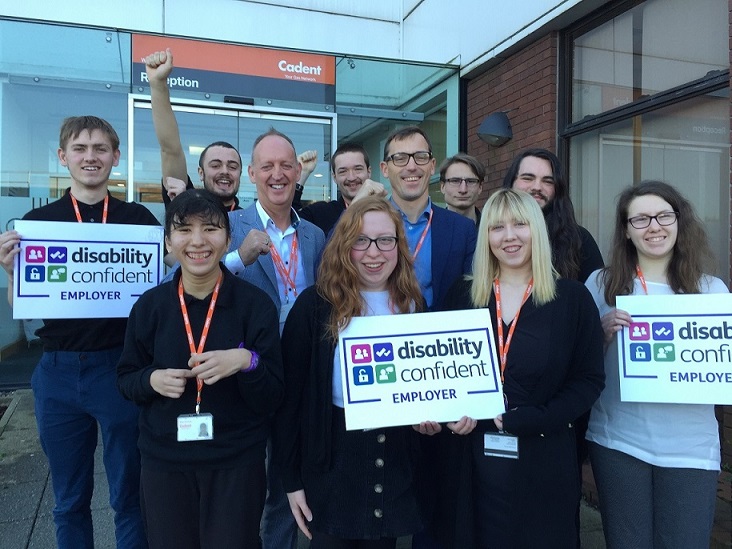
Being trusted by our customers is extremely important to us. We’re an essential public service provider so it’s important that you trust us to act responsibly for our communities and always deliver on our promises.
To truly respond to our customers’ needs, it’s vital that our workforce reflects the communities we serve. We work hard to create an inclusive environment for colleagues, customers and communities.



We are committed to ensuring colleagues feel that their differences and similarities are celebrated and appreciated. One of the ways we’re achieving this is through our Employee Communities. They represent a broad spectrum of what makes up our culture, and help to keep employees engaged and motivated. The Communities include:
Our ambition is for current and future generations of Lesbian, Gay, Bisexual, Transgender, Queer (LGBTQ+) employees to feel comfortable, safe and included at work. Pride at Work is a welcoming and safe space where our LGBTQ+ and allied members can thrive and feel included. The group aims to provide informal support to LGBTQ+ colleagues and is run by employees for all employees.
Women in Cadent is a network of colleagues from across our business, who are all committed to creating equality and supporting women’s professional and personal development. The community works closely with our Women’s Engineering Society ambassadors to support opportunities for female engineers, and partners with the Women’s Utilities Network which was co-founded by Cadent’s Director of Strategy, Dr Angela Needle.
The Embrace Community raises awareness of and drives discussion on issues affecting colleagues from an ethnic minority background, and of all religions. We are committed to developing a workforce that reflects the communities we serve, and Embrace plays a key role in helping to create an inclusive environment for all.
We actively support service leavers entering the business, our current reservists and those that have previously served. The Military Community take an active lead in supporting recruitment, and in the Armed Forces Day and Reserve Forces Day events.
Our newest community, Thrive is an employee-led community created to raise awareness of and support people with disabilities within Cadent. Its community members share a common vision of focusing on ability and making our workplace accessible and supportive to all.
With the support of our Communities, we’ve launched a series of internal and external campaigns to drive discussions around inclusion. This has included live ‘Lunch & Learn’ sessions to educate and inspire colleagues, keeping them connected during the COVID-19 pandemic. Through our social media campaigns, we have shared personal stories and lived experiences from a range of colleagues.
We’ve supported:
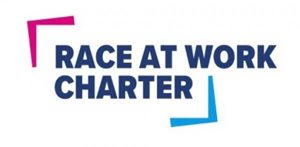

We are proud to have joined over 570 employers and become the first UK gas distribution network to sign up to the Race at Work Charter, an initiative designed to improve outcomes for Black, Asian and minority ethnic employees in the UK.
Launched in partnership with the UK government in 2018, the Race at Work Charter builds on the work of the 2017 McGregor-Smith Review, which found that people from Black, Asian and minority ethnic backgrounds were still underemployed, underpromoted and under-represented at senior levels.
The Charter consists of five ‘calls to action’:
By signing the Charter, we join a community of signatories across a wide range of sectors in the UK, who are committed to embedding the five calls to action in everyday business.
Sandra Kerr CBE, race equality director at Business in the Community, said:
We would like to thank Cadent for setting out their commitment to being an inclusive and responsible employer. By signing up to the charter, they are showing that they aspire to have one of the most inclusive workplaces in the country. Together we can break down barriers in the workplace, raise the aspirations and achievements of talented individuals and deliver an enormous boost to the long-term economic position of the UK.”
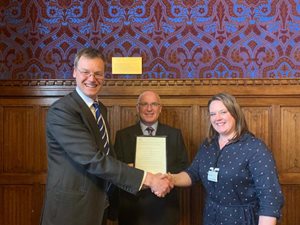
We were named a ‘Youth Friendly Employer’ by Youth Employment UK, the country’s leading organisation dedicated to tackling unemployment amongst young people.
Recent statistics from Energy & Utility Skills revealed a widening ‘youth gap’ in the energy and utilities sector, with nearly a fifth of employees aged 55 or older but only 8% under 24.
By teaming up with Energy & Utility Skills, Youth Employment UK and our fellow employer members, we are committed to inspiring more young people into critical industries. We are using our expertise to support, promote and guide young people to roles or training provision in the sector or to get ‘work-ready’ by developing additional skills.
Laura-Jane Rawlings, Chief Executive, Youth Employment UK, said:
I am delighted to recognise Cadent as a ‘Youth Friendly Employer’ for its commitment to providing high calibre work and training opportunities for young people.
We look forward to working with Cadent and the wider energy and utilities sector.It will be great to support them as youth friendly employers and connect them with the more than 65,000 young people using our skills and careers resources each month.
We recognise that there is more work to do to ensure equal opportunities for young people from various social backgrounds. To build on our work as a Youth Friendly Employer, we are actively participating in the Social Mobility Employer Index, led by the Social Mobility Foundation. This enables us to identify areas where we can improve our offering and play our part in driving greater social mobility.
We are proud signatories to the Armed Forces Covenant. As a member, we commit to acknowledging and understanding that those who serve or who have served in the armed forces, and their families, should be treated with fairness and respect in the communities, economy and society they serve with their lives.
Signing the Covenant underlines our commitment to those in our workforce who have a link to the armed forces, and we actively partner with organisation such as the Careers Transition Partnership to promote our job opportunities to service leavers. We are proud to be an ‘armed-forces friendly employer’.
A Warm Hub is an affordable, inclusive activity run for the community by the community, in a warm and safe space. As well as helping to reduce social isolation, Warm Hubs offer other benefits, including possible access to funding opportunities. Warwickshire’s first Warm Hub was launched at Shotteswell Village Hall on 13 December 2020.
Our volunteers were delighted to help deliver some of the 126 cooked breakfasts to residents, along with local MP Jeremy Wright. Jeremy commented: “Community volunteers in Shotteswell have been showing real community spirit and ingenuity in adapting the Warm Hub concept to the age of Covid-19. It was a real pleasure to see that warmth (and warm breakfasts) being distributed around the village”.
In 2019 we were named a ‘Disability Confident Employer’, recognising our efforts to create an increasingly welcoming workplace for people with disabilities.
Among the initiatives that contributed to this success status is our award-winning EmployAbility supported internship scheme. The year-long scheme provides work placements and qualifications for students, helping them develop the confidence they need to thrive in the workplace.
More than 70% of interns enter into employment at the end of the scheme, compared with less than 7% of people nationally with learning disabilities. In 2020, we recruited Niall Potter from Liverpool to one of our engineering apprenticeship schemes, after he took part in our very first field engineering-based EmployAbility internship.
We have taken a number of other measures, including working with Job Centre-plus to ensure our job adverts reach people with disabilities, making reasonable adjustments to ensure people with disabilities are able to access Cadent sites and making sure that information about assistance and support available, for example around mental health and wellbeing, is easily accessible to everyone.
As part of our continued commitments as a Disability Confident Employer, we have established an employee community called Thrive to raise awareness of and support disabilities across Cadent, in a welcoming forum for all members.
We continue to test and improve our approach to ensure we have the greatest possible impact in educating customers across the UK on this vital topic. We are growing our partner network to ensure we make the most of existing connections with local communities.

We're committed to providing an outstanding experience for our customers.
Our focus now and for the foreseeable future is to keep innovating at pace, bringing effective tools, techniques and processes to market to keep the energy flowing safely, reliably and with minimal disruption.



Our Easy Assist ECV project is putting customers with mobility challenges at the forefront of our thinking, with a simple, accessible technology solution.
We have identified a large population of our customers on the Priority Services Register (PSR), who would find it difficult to turn off their gas supply in an emergency. This is due to limited mobility or hand movement.
Our solution, developed with Oxford Product Design, is a mechanical device that can be fitted over the existing emergency control valve (ECV), with a single push button which is extended from the device. The device then turns the ECV to the ‘off’ position.
This technology has the potential to transform the way our customers access their gas supply in an emergency, reducing the understandable stress and confusion that gas emergencies can create. We shared the concept with our partners in the utilities sector at Utility Week Live Online and the Energy Networks Innovation Conference in 2020, and are now preparing to finalise and roll out the technology to customers.

We have collaborated with our partners in the London Infrastructure Group to plan a series of high profile engineering works together, with a right first time attitude to deliver improvement works across gas, water and electricity. Our commitment is to minimise disruption to local communities, by coordinating works and preventing multiple visits to the same location by different utilities. We estimate that through this approach, we have saved over 250 days of disruption to local communities.
Over the Christmas 2020 period, we formed a union with peers at Thames Water, the Greater London Authority (GLA), Transport for London (TfL) and the London Borough of Tower Hamlets to deliver essential utility works in Whitechapel.
This was all made possible thanks to our use of the high tech Cast Iron Joint Sealing Bot (CISBOT) from ULC Robotics, to give an ageing 170m section of gas mains a new lease of life without interrupting gas supply.
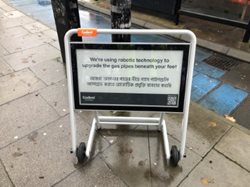
Recognising the needs of the local community, we used a digital update board to provide real time messages about the works in English and Bengali, for passers-by who may not have seen our coverage via our social media posts or local news articles beforehand.
Andrew Sherry, Area Coordination and Permitting Manager (East), TfL, said, “The Whitechapel project is a great example of how Cadent is actively supporting the TfL Roadworks Charter.
By sharing long term plans, finding smarter ways to communicate and working collaboratively with Thames Water, Cadent did a fantastic job working with TfL to minimise disruption for customers during the festive period. These outputs feed into a wider TfL strategy to deliver a blueprint for ‘supercharged collaborations.
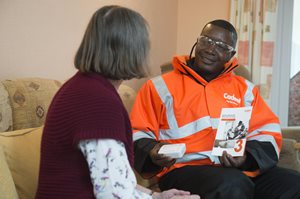

We have worked with Frazer-Nash, with support from the Energy Innovation Centre (EIC), to develop an innovative new ‘welfare decision tool’ for emergency engineers.
During day-to-day operations, our engineers often encounter customers who could benefit from additional welfare support – especially those on the Priority Services Register (PSR). We recognised the need to make it easy for engineers to get the right support quickly, easily and on a repeatable basis.
Customers on the PSR may have additional requirements for support including serious health conditions, physical impairments, living with young children, being of pensionable age, requiring additional communication support or a variety of other potential vulnerable situations.
To help these customers we have created a new mobile app, which puts all the data held within the PSR at an engineer’s fingertips. This enables faster and more consistent decision making on which products and services can best support a customer in a given situation. The decision tool also considers key external data, such as weather forecasts, individual customer needs and how long the customer is likely to be without gas.
Megan Smith, Senior Engineer and Project Manager at Frazer-Nash, explained, “We worked closely with Cadent to develop a tool that meets the needs of both their frontline engineers and their Customer Safeguarding Team. The result was an easy-to-use mobile app that provides data-driven welfare recommendations to Cadent’s engineers at their fingertips while out and about.”
Anthony Reid, Innovation Engineer at the EIC, said, “It is really encouraging to see the networks actively seeking innovative solutions to safeguard people in the most vulnerable situations in society. It was fantastic to see the final product come together, as a result of the hard work and creative approaches demonstrated by the project teams. I’m excited to see how this tool can improve the support that energy networks are able to offer their customers.”
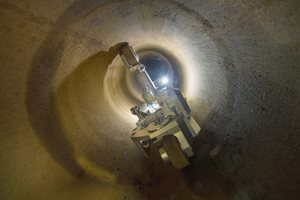

The Cast Iron Joint Sealing Robot (CISBOT) is a remotely controlled robot which we are using to repair and upgrade gas pipes in some of the busiest streets across the UK.
Throughout the COVID-19 pandemic, Cadent and ULC teams have worked with dedication and flexibility to continue with essential gas pipe work, keeping gas flowing safely and reliably to local communities – all with minimal disruption.
To continue providing critical CISBOT work during lockdown, the team was split into bubbles to live and work in. The CISBOT team went above and beyond their usual responsibilities as this meant that they had to isolate away from their home and families during restrictions, as well as missing crucial family moments such as witnessing the birth of children.
The bubbled teams were able to continue their work effectively, enabling 3,669 gas pipe joints to be upgraded throughout lockdown, as well as offering emergency response work in iconic locations like Whitehall in London.
We worked closely with ULC Robotics throughout to understand the planning required for CISBOT projects, carrying out the necessary engagement with local authorities and stakeholders to facilitate the works. The team was able to react quickly to changes in the project plan with strong support from council members to continue working throughout, such as at high-profile locations like Sloane Square.
Tony Pegrum, Network Manager at The Royal Borough of Kensington and Chelsea said “Through the use of CISBOT the project was able to be completed within 7 months as opposed to nearly 3 years... This is unprecedented and is one of our biggest successes so far in terms of positive network management.


In 2020 we announced the ten winners of the Connect the Community: Design Challenge, a global technology competition designed to tackle loneliness and isolation in the community.
Typically, we may think of people who are elderly or ill as being most affected by isolation, however, the COVID-19 pandemic has shown how anyone can become isolated by circumstances.
We teamed up with two fantastic partners, RS Components - the leading distributor of electronic, electrical and industrial components - and technology specialists Nordic Semiconductor. Together, we called on young engineers and creative thinkers asking them to think about how isolation and loneliness had impacted those in their community and to conceptualise new, innovative ideas to solve these challenges using internet of things (IoT) technologies.
From a pool of over 50 high quality entries, tech and customer safeguarding experts from Cadent and its partners selected the ten transformative ideas that stood out to them. We have since been working with the winners to connect them with expert designers and unlock funding opportunities to make their concepts reality.
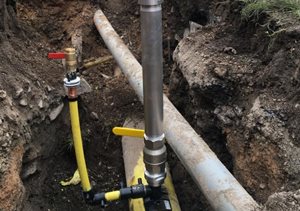

>We initiated our Top Tee Siphon Adaptor project to tackle the issue of water entering gas pipes and disrupting customers’ gas supplies.
When water enters gas pipes, it can leave customers without gas for several days. Common industry solutions are often time-consuming, and keep customers off gas until the water is removed. The Top Tee Siphon Adaptor (TTSA) was adapted from a concept imagined by one of our own engineers, supported by the technical expertise of Gas Leakage Solutions. The result is an easy-to-use, flexible technology that is the first of its kind to be used on a UK gas network.
After successful trials on live, large-scale gas incidents, we distributed the equipment to teams across our networks, with formal training in place to ensure we can deploy it at pace.
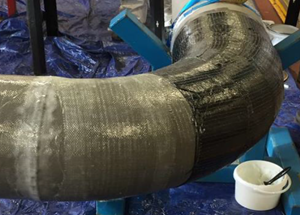

We have led our industry partners on a journey to reimagine how we repair complex gas pipe shapes.
Our Composite Repairs project followed on from our initial research into using composite repairs on simpler pipe shapes, an approach which has been successfully adopted into day-to-day operations.
Working closely with the experts at TEAM and DNV GL and our gas network partners, we took the lead in advancing composite repairs to complex pipe shapes. From this we have achieved a valuable solution to our own operational challenges, and increased the knowledge of our industry, dispelling myths about what is and isn’t possible in repair technology.
This proactive approach to managing gas transmission and distribution assets means we can repair gas pipes in the most efficient and cost-effective manner possible, keeping gas flowing safely and reliably for the long term.


Our people work 24/7 to keep customers connected to safe and reliable gas supplies.
This can present unique challenges where high rise buildings are involved, which involve work to the vertical pipes supplying flats. Even at the best of times there can be issues in gaining access, securing the required permissions and sourcing the specialist equipment sometimes needed, such as scaffolding.
Nevertheless, we have adapted and embraced innovation to achieve some real successes in this area during the COVID-19 pandemic.
Our Microstop technology – which we first encountered when learning from our partners at SGN – works by creating a bypass on a section of the ‘riser’ pipe supplying multi occupancy buildings, so that we can complete our essential works without interrupting gas supplies. We have formally trained our teams in the use of Microstop, and successfully used it on a number of live sites to minimise disruption during the pandemic.
Meanwhile, the 40mm ServiFlex helps us work on large diameter service pipes in the street, while minimising the amount of digging involved. ServiFlex is adaptable and easy to install, reducing the requirement to dig or move/resupply customers’ meters or pipework.
With these technologies, we are minimising our impact on customers’ gas supplies, allowing them to continue with their day-to-day lives.
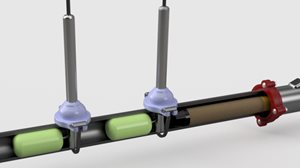

As part of our plans to upgrade the gas network, we identified the need for a safe, efficient and practical method for replacing short lengths of metallic gas mains in challenging locations.
Foam Bag Operation on Stubs builds on several robust, approved techniques already on the market. The concept allows engineers to access areas of pipework where additional planning would otherwise have been required (for instance, underneath busy junctions), while significantly reducing disruption to road users and customers and ensuring safe working conditions for our engineers and the public.
We are now working through a series of extensive field trials, after which we intend to roll out this technology across our networks.
Find out more from Vishal Dhanji:
We use cookies to give you the best possible online experience, ensuring our websites are reliable and secure.
You can allow all cookies or manage what we use them for. You can find out more on our Cookie policy page.

When you visit any website, it may store or retrieve information on your browser, mostly in the form of cookies. This information might be about you, your preferences or your device and is mostly used to make the site work as you expect it to. The information doesn’t usually directly identify you, but it can give you a more personalised web experience. We respect your right to privacy, you can choose not to allow some types of cookies. You can change your cookie settings by selecting from the headings below. However, blocking some types of cookies may impact your experience of the site.
Essential Cookies
These cookies are necessary for core functionality, such as security and network management. They always need to be on.
Targeting Cookies
Targeting and advertising cookies are specifically designed to gather information from you on your device to display advertisements to you based on relevant topics that interest you for more details .
